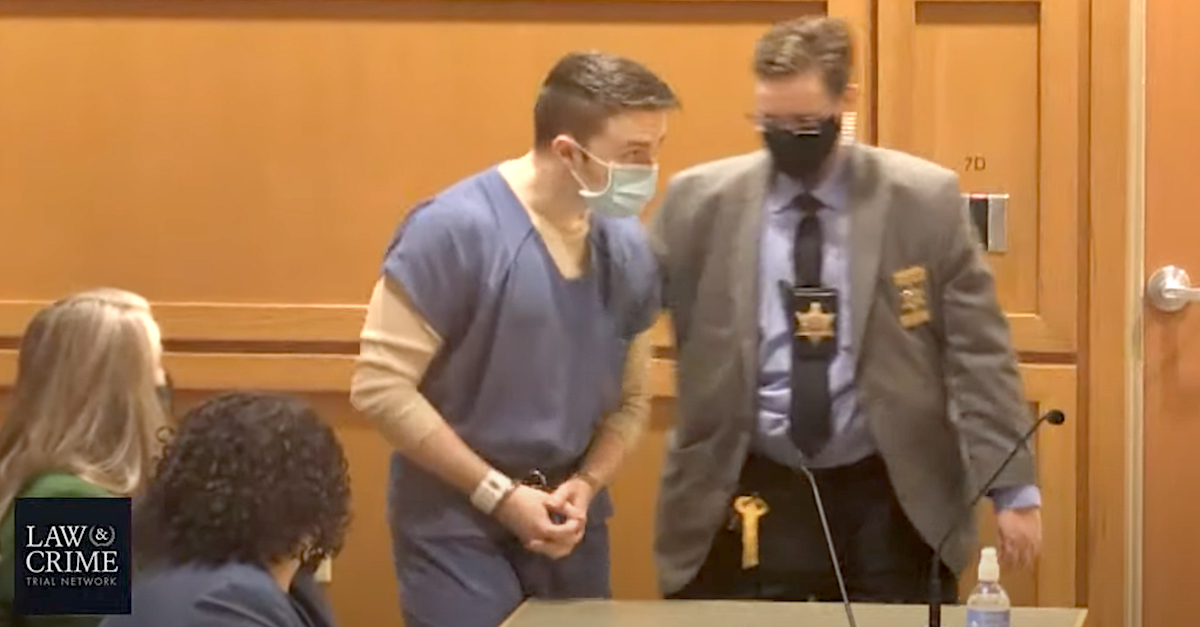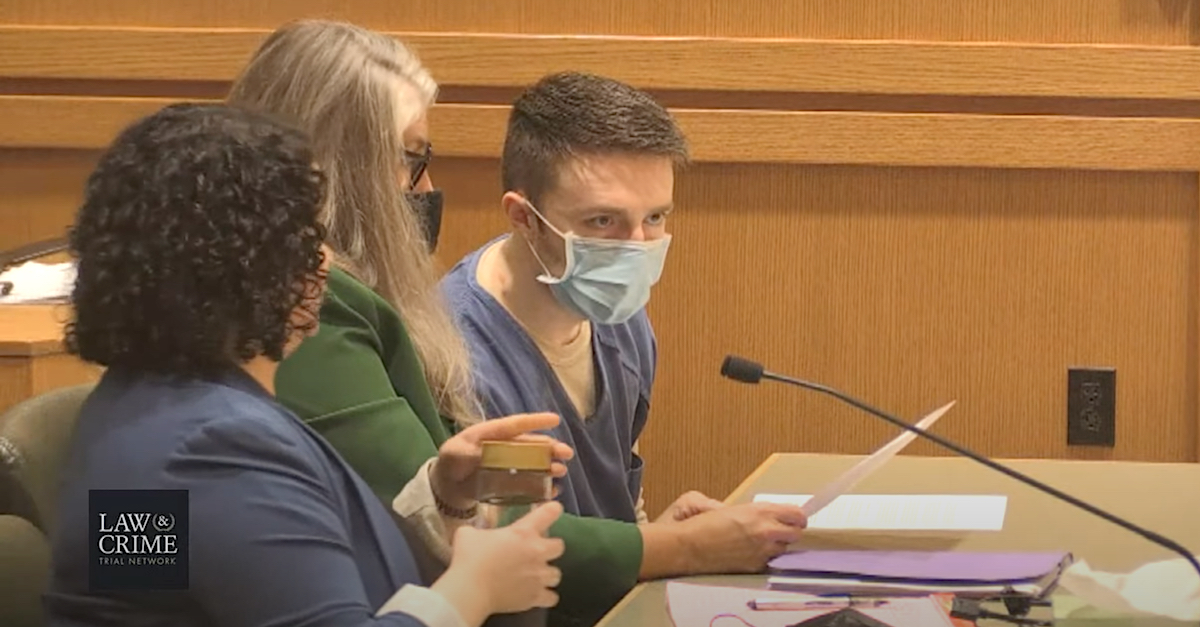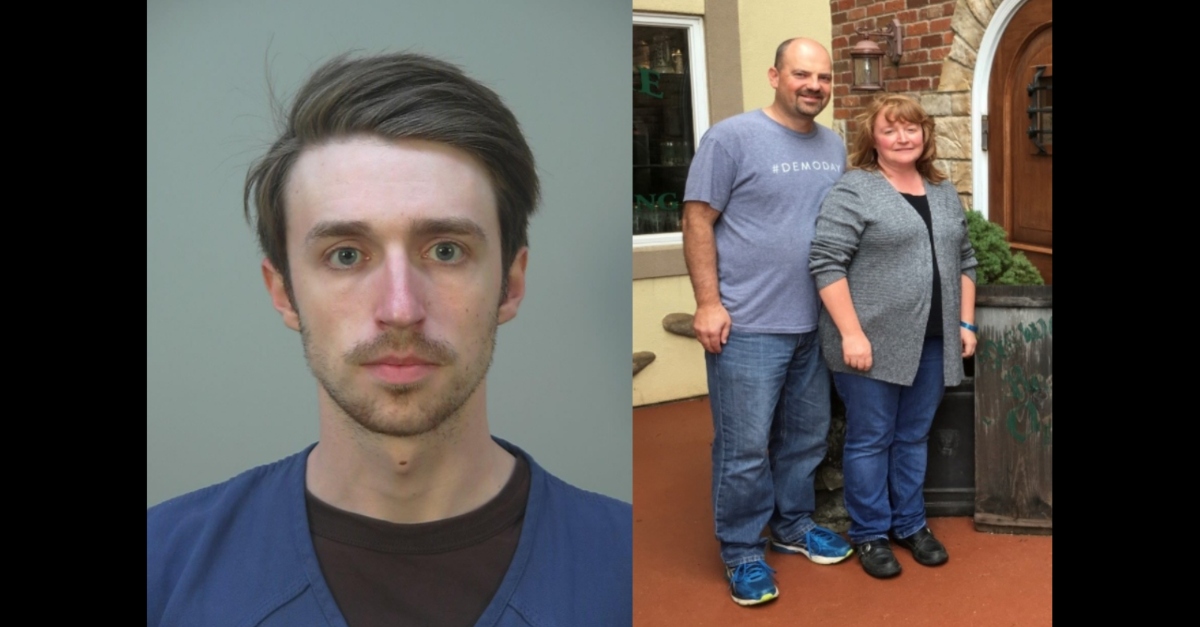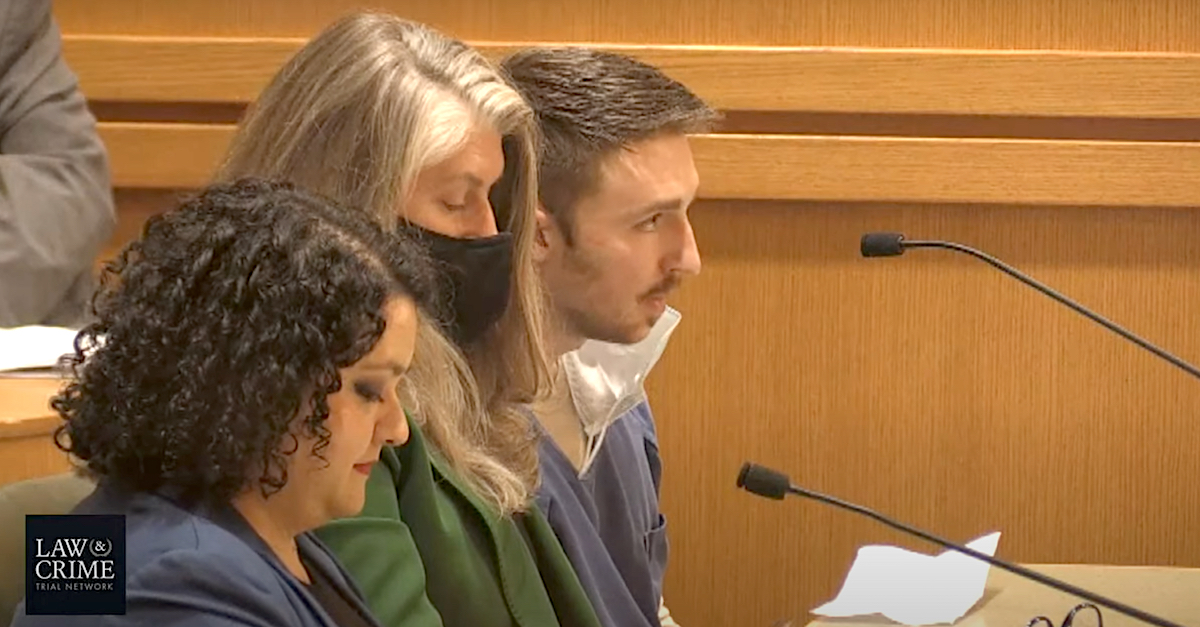
Chandler Halderson is led into court before being sentenced.
A Wisconsin judge has sentenced a young man convicted of murdering both of his parents to life in prison without any opportunity for extended supervision.
A jury convicted Chandler Halderson, who just turned 24 a few days before the Thursday sentencing hearing, on two counts of first-degree intentional homicide, two counts of providing false information regarding a kidnapped or missing person, two counts of mutilating a corpse, and two counts of hiding a corpse. That’s one count on each charge for each victim.
“I have to, for this sentencing, ensure that the only time Mr. Halderson comes back into the community is to have the privilege of the burial he denied his parents,” Judge John D. Hyland said while passing the sentence.
At trial, prosecutors said Halderson lied to his parents about working for a local insurance company and with a local rescue dive team while he was really living at home and playing video games during the day. He even told his girlfriend he secured a job with Elon Musk’s SpaceX, but authorities alleged that he tried to cover for that lie by lying about sustaining a head injury — which he said necessitated the cancellation of a planned move to Florida.
When his lies caught up with him, a jury agreed with prosecutors that Halderson shot his father, Bart Halderson, 50, in the back; he then killed his mother Krista Halderson, 53, when she returned home. The June 2021 killings involved an alleged cover story: Halderson claimed his parents took off for a lake retreat in Wisconsin’s north woods around the Fourth of July and never returned. That, prosecutor said, was a lie; the jury convicted the defendant as charged.

Chandler Halderson prepares to hear his sentence.
During a Thursday sentencing hearing, prosecutor Andrea Raymond said the case presented her office with “not your average” pre-sentence investigation.
“Chandler grew up with a life of privilege by pretty much any sort of angle you look at it,” Raymond said. His parents were happily married and supportive of him, she noted. “There’s absolutely no evidence of abuse whatsoever. Chandler grew up with no housing insecurities; he never had to wonder where his next meal was coming from; and he was never exposed to any violence . . . or, really, any guns.”
“Perhaps his mother babied him a little too much and was a little too doting,” Raymond continued. “It is out of this life of privilege — this childhood, that was nearly ideal — that he committed these crimes. It’s also worth noting that these crimes were committed against these two individuals that provided this childhood for him; the two people that took care of him.”
“Chandler never mourned his parents,” the prosecutor added. She said the other homicide cases she’s prosecuted generally contained a measure of remorse — even by a convicted killer.
Rather, when a relative told Halderson they were sad after attending a memorial service, the defendant told the relative to go watch Halloween — “a slasher movie,” Raymond noted.

Chandler Halderson appears in a mugshot (left). His parents, Bart Halderson and Krista Halderson, appear at right.
Given the close familial nature of the killing, victim impact letters invariably vacillated between support for the possibility of parole for the defendant and hope that defendant would never be afforded to live outside prison walls (or potentially victimize other relatives in the future).
Raymond said relatives would spend their lives questioning whether they missed red flags or could have done anything to save the victims from their untimely fates.
William Leroy Brown, another prosecutor, said Halderson “seemed to be a pretty normal kid with a pretty normal life who did a pretty abnormal thing as he turned 23.”
“Someone in Mr. Halderson’s shoes, with his mindset, can never be safe in this community,” Brown continued. “His willingness to solve the minor inconveniences of life with brutal violence can never be mitigated in our community. As long as he breathes, he will be a risk.”
Defense attorney Crystal A. Vera attempted to stress to the judge that Halderson was redeemable and deserved a chance at parole. She said sentencing was a “delicate combination of punishment and rehabilitation — redemption, if you will.”
Halderson spoke briefly at sentencing.
He was stoic and spoke in an almost robotic, monotone voice.
“Your honor, I want to take this opportunity to state my intent to appeal my convictions,” Halderson said. “If there are any lawyers listening, and willing to take on my appeal, take a moment to please reach out to me. It’s not that I do not have feelings. It’s that I was warned not to show them due to the scrutiny of this case. Thank you.”
Judge Hyland said the need to protect the public was more important than the “reconstruction” of the Halderson family. He encouraged individual family members to decide for themselves whether it was appropriate to reconnect with the defendant behind prison walls.
Hyland also said he “tried not to think about” precisely how the defendant committed the killings.

Chandler Halderson reads a statement at sentencing.
“I don’t wish to engage in that speculation at sentencing,” the judge said, but he noted that the jury convicted the defendant of killing his parents, mutilating the bodies, lied to the police, and “robbed those people of dignity.”
The judge appeared to struggle to hold back his own emotions when pondering the viciousness of the crime.
“My condolences go to every member of their family,” he said.
[images via the Law&Crime Network, except as noted]